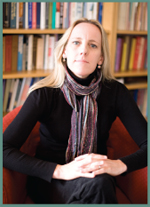In Times of Rampant Lies, Small Steps toward Truth Matter Most

I find the term “Orwellian” is often applied appropriately. Unfortunately, you hear it a lot these days. President Trump’s tweet, not long after Iran retaliated for the killing of their top general by launching missiles on US troops at an Iraqi airbase, that “All is well!”—that’s Orwellian. To go from saying no one was hurt in the January 8 attack, to repeatedly underreporting the number, to then categorizing the traumatic brain injuries of 109 US service members as “headaches…not very serious”—that’s Orwellian. And, for just one more example (of the so very many), to hear Trump announce his proposal to curtail the environmental impact report process under the National Environmental Policy Act and then say: “I want the cleanest air, want the cleanest water. The environment is very important to me”—that’s about as Orwellian as it gets. Straight out of 1984’s Ministry of Truth, the president even bragged that a book had been written on the topic. The Washington Post reported it was penned in 2016 by a longtime employee of the Trump organization and titled, Donald J. Trump: An Environmental Hero. (“Winston” surely would have been canned had he added a truthful subtitle: The Ego that Ate the Ecosphere.)
In addition to all the newspeak, don’t you also wish you could enjoy a day where the usual norms aren’t being blown to smithereens? Where the third-ever impeachment trial of a US president isn’t the first not to call a single witness? Where we don’t learn the year that just ended was the second hottest on record and where a novel coronavirus didn’t jump from animals to humans in China and hasn’t killed thousands and infected many more around the world? It would be nice to have a day that was wholly unremarkable. But that’s not the world we live in.
Echoing the sentiments Tom Krattenmaker puts forth in his commentary on the future of humanity and the catastrophic effects of climate change, “We must make this new decade the chapter in the story when humanists and other lovers of decency and democracy and flourishing rally to set society back on a healthier and more responsible course.”
Part of that course correction involves ending religiously motivated persecution or violence against anyone outside the majority religious tradition anywhere. In the January testimony provided to Congress by author and humanist Rafida Bonya Ahmed, she recounts the horrifying attack she and her husband Avijit Roy experienced in 2015, an attack that claimed his life. Nonbelievers in a country with strict blasphemy laws, they were targeted for their books and blog posts on philosophy, science, art, and the origin of life. (“This is the summation of our crimes: we wrote.”) The hearing before the House Foreign Affairs Subcommittee on Africa, Global Health, Global Human Rights, and International Organizations, along with the Oversight and Reform Subcommittee on Civil Rights and Civil Liberties, was a groundbreaking first step toward challenging the injustices and brutality the nonreligious and those of minority faith groups face around the world in places where blasphemy laws are upheld.
As Orwellian as things seem, we’ve not reached Oceania just yet. We must continue to protect the freedom of expression and the freedom of and from religion. We can also try to face each day not with dread for what might happen, but with resolve to engage more would-be humanists to the side of reason and compassion.
Sometimes it happens in waves, and sometimes just one person at a time. Recently, AHA joined other secular groups at the US Supreme Court to make our voices heard ahead of arguments in Espinoza v. Montana Dept. of Revenue (discussed in this issue in “American Jurisprudence on Trial” by Gordon Gamm). Those in favor of allowing tax breaks for people who fund scholarships at private religious schools won the optics battle by recruiting several busloads of middle school students to rally their cause on the court steps. When one student approached an AHA staffer and asked why humanists were against funding education, he explained that we weren’t against it as a whole. He explained the establishment clause of the First Amendment and the difference between secular public education and private religious education. “You know, I kinda agree with ya’ll,” she responded. At a time of rampant lies and unprecedented firsts, sometimes it’s the small first step toward truth that matters most.
